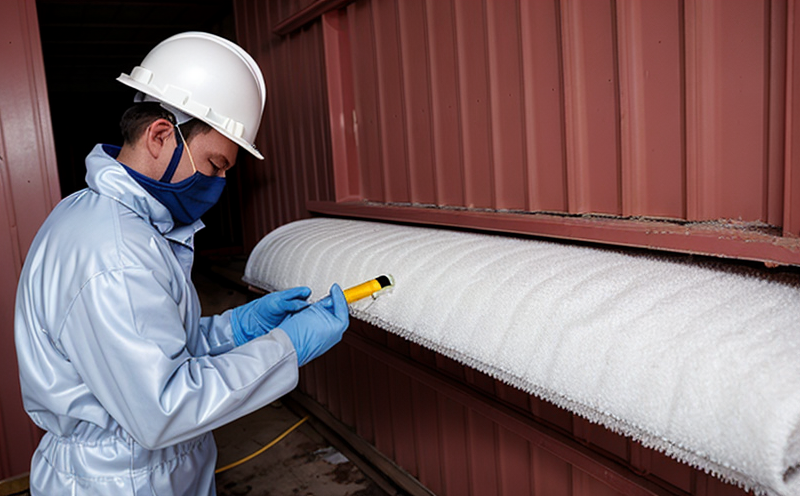Thermal insulation inspection
The thermal insulation inspection is a critical component of construction and building inspections. It ensures that materials used in buildings meet specified performance criteria to maintain energy efficiency, comfort, and safety. Properly insulated structures are essential for reducing heating and cooling costs, minimizing heat transfer through walls, floors, ceilings, and roofs, and providing a more comfortable living environment.
The inspection process involves assessing the quality of insulation materials and their installation throughout various parts of a building. This includes examining the thickness, density, and uniformity of insulation in different areas such as attics, basements, crawl spaces, and exterior walls. The integrity of the insulation is also evaluated to ensure that it remains intact over time.
Thermal insulation plays a vital role in achieving sustainable construction standards like LEED (Leadership in Energy and Environmental Design). It helps meet energy efficiency targets by reducing the building's carbon footprint and improving indoor air quality. Properly insulated buildings can lead to lower utility bills, enhanced occupant comfort, and increased property value.
During an inspection, it is crucial to use appropriate methods that accurately measure thermal performance. Techniques include thermographic imaging (infrared scanning), heat flow meters, and conductivity tests. These tools help identify areas where insulation may be insufficient or compromised.
The scope of a thermal insulation inspection varies depending on the type and age of the building being inspected. For new constructions, the focus is often on ensuring compliance with current building codes and standards regarding insulation levels. In existing buildings, inspections aim to assess whether existing insulation has degraded over time due to factors such as age or poor maintenance.
Accurate documentation of findings during these inspections ensures that necessary actions can be taken promptly if issues are identified. This might involve recommending additional layers of insulation where needed or making repairs to damaged sections of insulation.
Applied Standards
| Standard | Description |
|---|---|
| ASTM E1740 - 23 | Procedures for Determining Thermal Resistance of Building Assemblies by Heat Flow Meter Method. |
| ISO 9869-1:2015 | Determination of thermal resistance and related properties of flat thermally insulating materials - Part 1: Steady-state methods using guarded hot plate apparatus. |
| EN ISO 7340:2015 | Thermic insulation of buildings - Determination of the steady state thermal resistance and related properties of flat thermally insulating materials by guarded hot plate method. |
| ASTM C518 - 96(2019) | Determination of Thermal Transmission Properties by Heat Flow Meter Method. |
Industry Applications
| Application Area | Description |
|---|---|
| New Residential Construction | Evaluating the thermal performance of newly built homes to ensure they meet local energy codes. |
| Commercial Building Retrofits | Assessing the effectiveness of insulation upgrades in existing commercial buildings aimed at improving overall efficiency. |
| Schools and Public Buildings | Ensuring compliance with thermal insulation requirements for energy-efficient public spaces. |
| Residential Retrofit Projects | Identifying areas where additional or improved insulation is needed in older homes to enhance comfort levels and reduce heating/cooling costs. |
| Healthcare Facilities | Guaranteeing that hospitals, clinics, and other medical facilities maintain optimal temperature conditions for patient care. |
| Sporting Venues | Maintaining consistent indoor temperatures in arenas to improve the spectator experience. |
Eurolab Advantages
At Eurolab, we offer comprehensive thermal insulation inspections tailored specifically to meet your unique needs. Our team of experienced professionals uses state-of-the-art equipment and methodologies to conduct thorough assessments that go beyond basic checks.
We provide detailed reports outlining our findings along with recommendations for any corrective measures required. With us, you can rest assured knowing that every aspect of thermal insulation is thoroughly evaluated, ensuring compliance with relevant standards and best practices.
Our services extend not only to residential and commercial buildings but also include specialized expertise in industrial settings where maintaining precise temperature controls is paramount. Whether it's for new construction or ongoing maintenance projects, Eurolab offers reliable solutions backed by years of industry experience.





